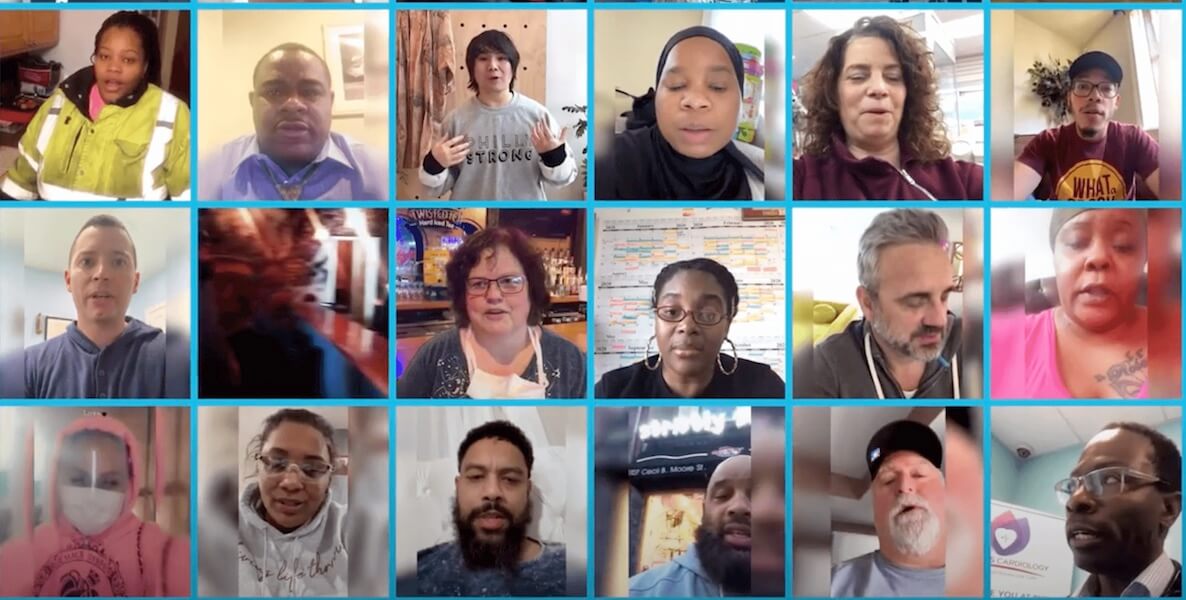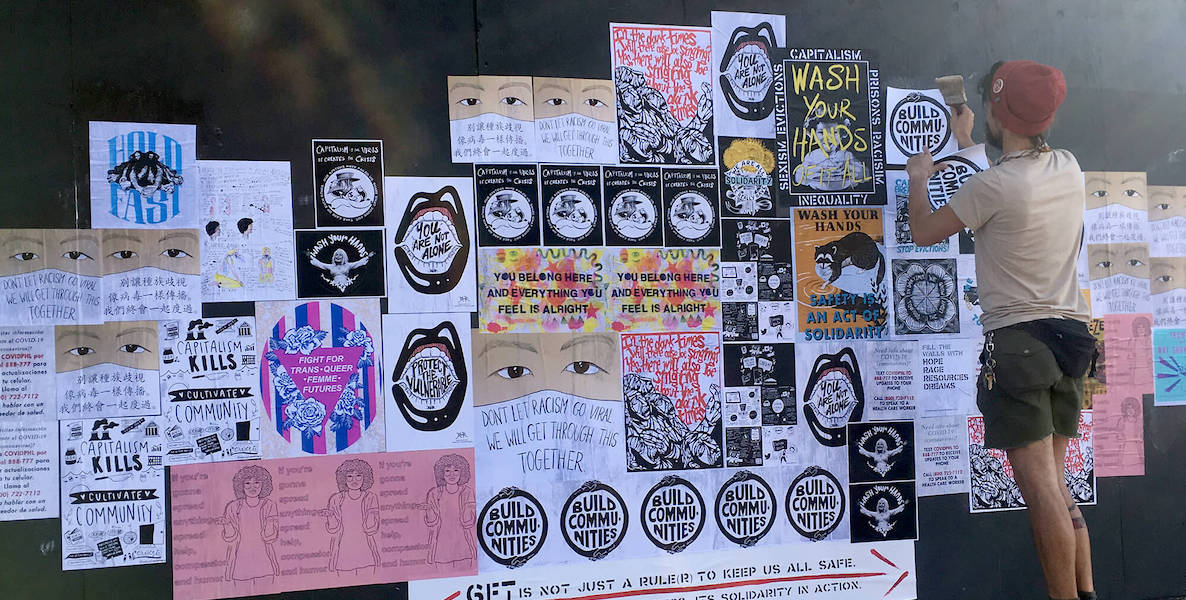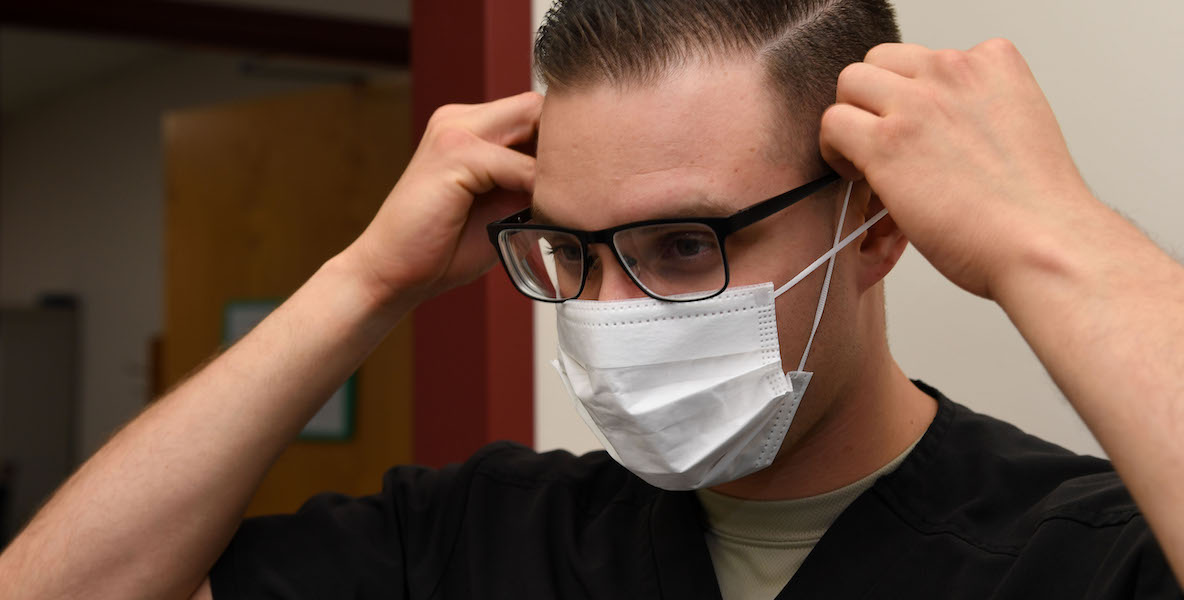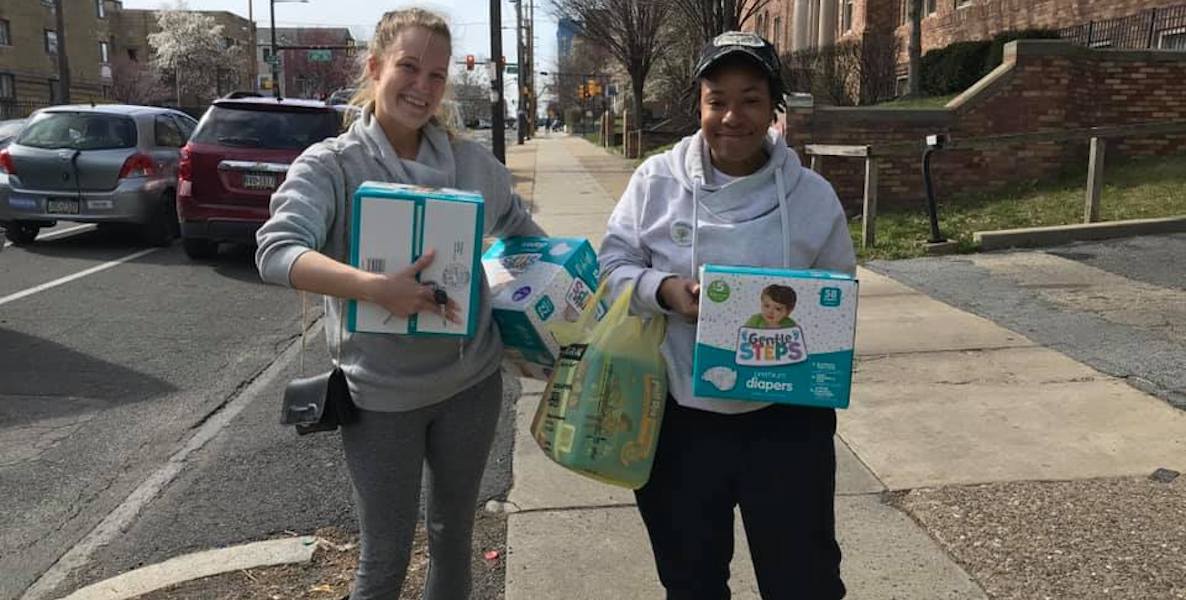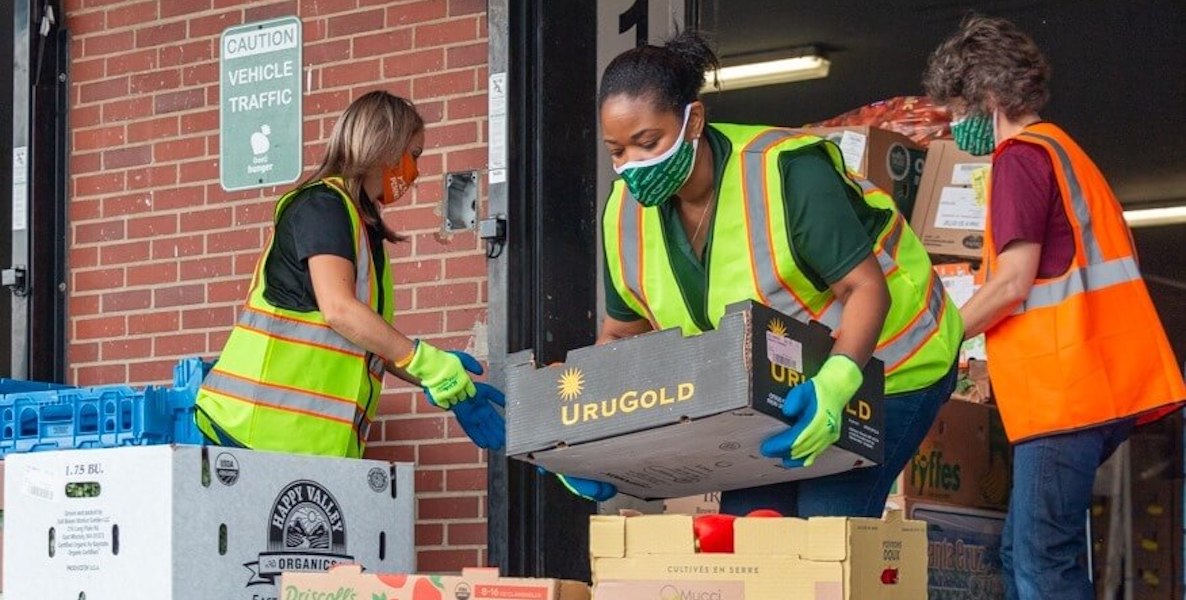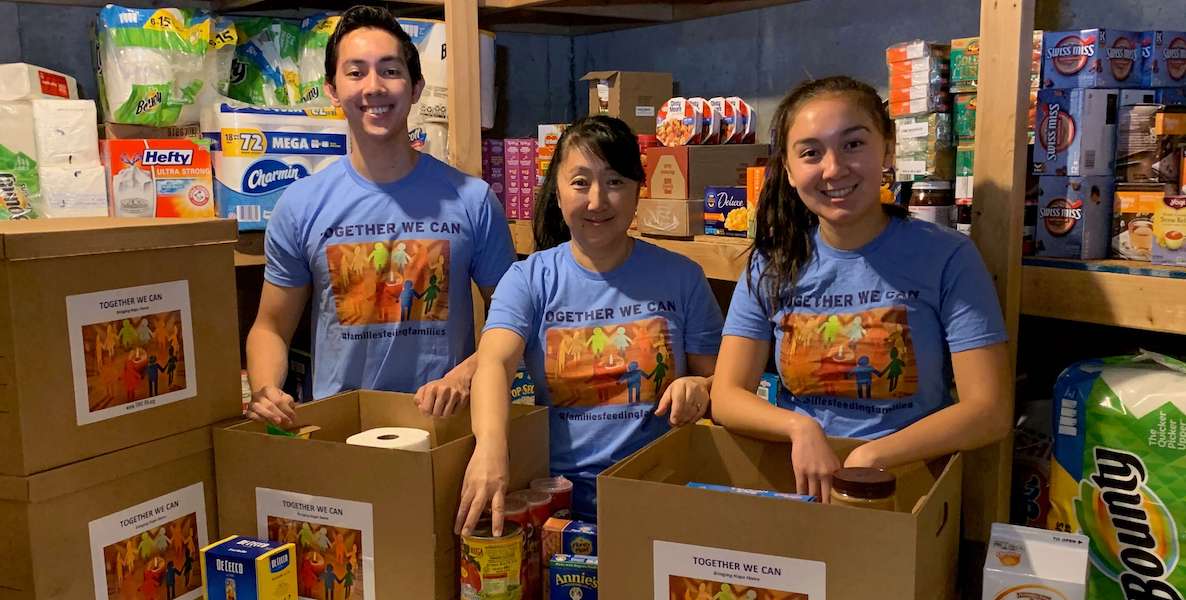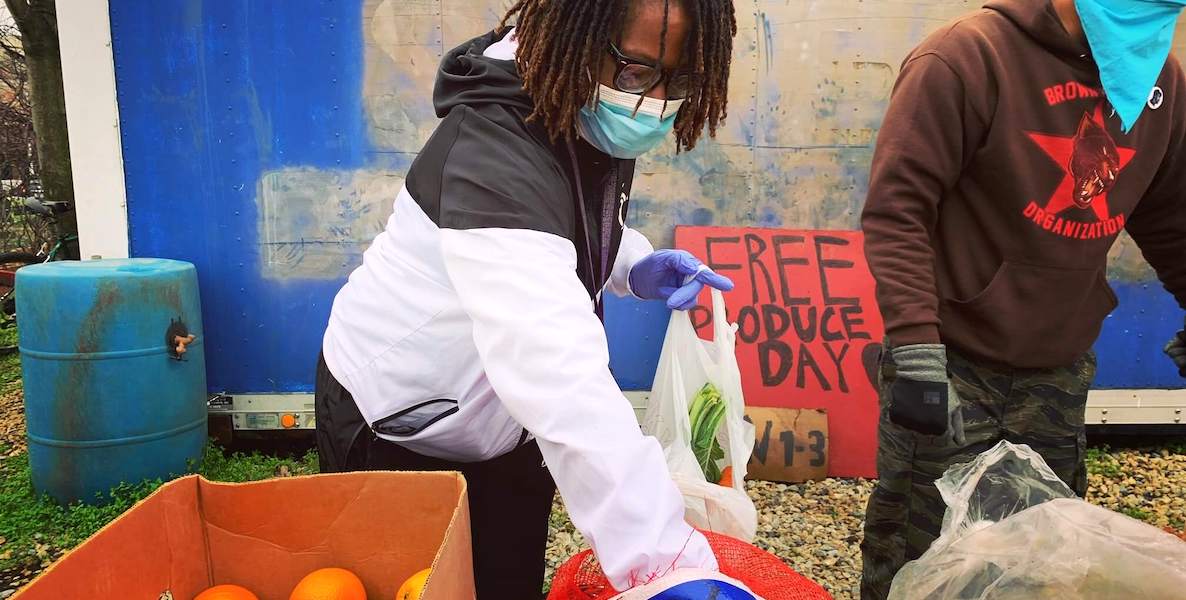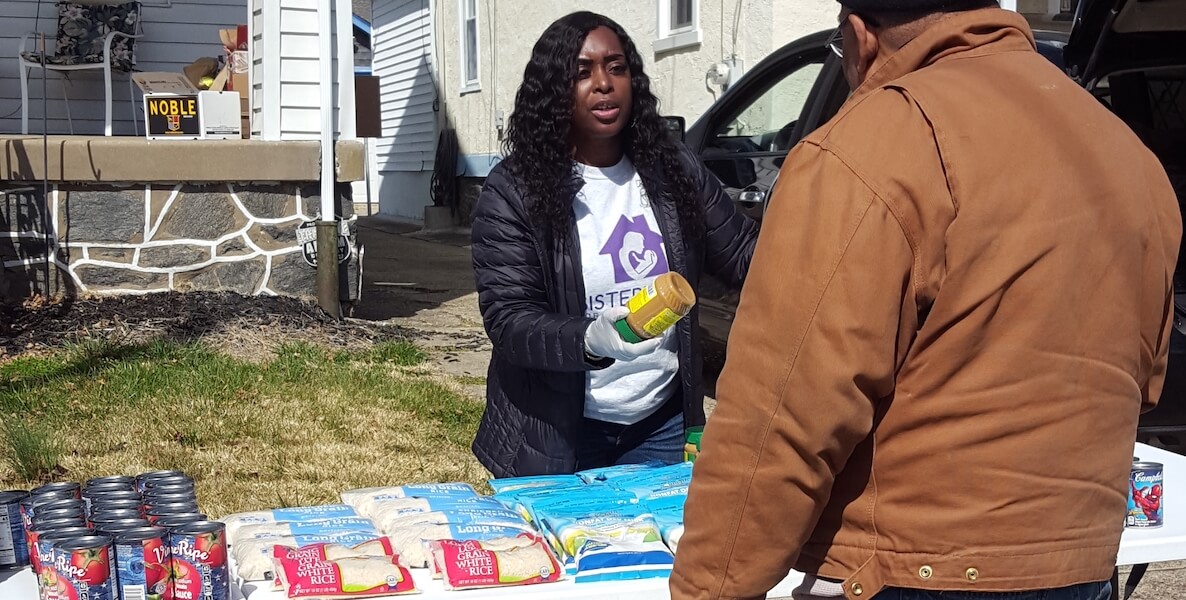Giving money to causes that matter to you is critical, and has the power to transform lives. But often it can feel impersonal, or not quite as impactful as you’d like it to, particularly if the organization you’re supporting has high operating costs, or many layers between donor and recipient.
So as the impact of the coronavirus epidemic began to hit Delaware County, Patty Bassett, who lives in Newtown Square, felt compelled to do more than write a check.
She knew things were bad for families, even before the pandemic: According to data from Feeding America, 12.3 percent of people in Delaware County are food-insecure. In its city of Chester, that figure is between 30 and 40 percent.
Bassett was especially concerned about families with young children and senior citizens who don’t have access to food distribution centers, whether because of mobility issues, health issues or other barriers.
“When the pandemic happened, we saw the growing need for food and were also forecasting that this is going to be a big issue going forward for the foreseeable future,” says the mom of two college-aged kids.
Bassett hatched a plan, calling it Together We Can, to connect the many families she knew who wanted to give back directly with people in need—while protecting the privacy of recipient individuals and families at all times.
She started by reaching out to 40 potential donor families that she knew personally, writing them a note that said: We would love to help families in need in our local community. Would you want to help?
Immediately she was flooded with yesses. In the last month, she has worked with 30 donors to help feed 22 families, or 84 people, in Delaware County — and is now set to launch her project in neighboring suburban counties, as well.
With a Wharton MBA and years of financial services experience in the U.S. and U.K. under her belt, Bassett also has a unique lens on how the food supply chain operates: Her banker husband, David, has worked for nearly a decade with clients in all aspects of the food chain, from agriculture to restaurants to packaged goods.
“A lot of people think that food insecurity is caused by the lack of food, but it’s not,” Bassett says. “Our country has plenty of food. The issues are logistics and access.”
“A lot of people think that food insecurity is caused by the lack of food, but it’s not,” Bassett says. “Our country has plenty of food. The issues are logistics and access.”
Two of the biggest barriers to food security in our local communities are economic and physical access to food, she says; job losses, medical issues and debt often underlie the former, and a lack of transportation to even get to supermarkets or food banks, the latter.
To overcome these challenges, Bassett decided to move ahead with a pilot program; she called Gloria Maples, who works on food programs at Family and Community Services of Delaware County, to identify members of the community with the highest needs. Working with Maples, families created lists of the things they most needed — from allergy-friendly foods to specific types of infant formula and diapers.
Bassett then took those list of requests and matched each family in need with a donor family; donors had the option of using grocery delivery services, like Instacart, or buying and dropping off items for packaging at Bassett’s home, to then be immediately delivered by Roadie.com (an on-demand driving service, for packages).
At no time did donor families know the identity of the recipients they were supporting; all of that behind-the-scenes work was handled discreetly by Bassett and Maples.
TWC’s pilot program ran from April 23 and concluded on May 14. During that three-week period, the organization provided the equivalent of 1,275 meals to 84 people from 22 families, with material and financial donations coming from 30 families.
In addition to meals, many donor families provided cleaning supplies and clothing that their “adopted” families had requested. Every single recipient chose to send a personal thank you note to its donor family, signing it by first name only to protect their privacy.
Bassett quickly brought on partners, like New York-based meal delivery service Freshly and Chicago-based healthy snack brand Tea Squares, to be able to access discounted rates.
“We’ve always talked about the fact that with privilege comes responsibility. And food is so fundamental; you can’t do anything if you don’t have the basics,” she says. “I feel that if you can solve food, it will address education, healthcare, and so many other major issues for our society.”
She created a board of directors, led by her husband and guided by trusted friends and community members. And she plans to grow from Delaware County into neighboring Montgomery and Chester Counties as well.
“One of the things that we are fundamentally guaranteeing to all of our donors is that 100 percent of everything you provide is going to the families in need,” Bassett says, noting that TWC already established 501c3 status, and that her work is purely on a volunteer basis. “Every cent that comes in, we are giving to providing food for the families. And that’s something I could not find anywhere else.”
She’s especially proud to provide families with exactly what they need or want—as opposed to other food programs that have a more generic stock of supplies. “We want to understand, on a more detailed level, what the needs are of our community and provide those things, so that our donors’ support is not wasted in any way,” she says. Donors can choose to “adopt” a family to support these specialized needs, or to contribute specific amounts towards the costs of items like snack boxes, meals, and groceries (which are common needs).
Maples, of Family and Community Services of Delaware County, has been blown away by Bassett’s impact, efficiency and dedication.
“Patty and her donors have been so awesome,” she says. “And the families have been so grateful and happy and thankful for all that she has done.” She says that the city of Chester has been especially hard hit, and that Bassett’s support has touched seniors whose money only stretches so far, and families who are barely making it.
“This is the time when everybody needs to pull together, when people with resources can really help others,” Maples says.
Bassett says that’s a lesson she and her husband have always tried to instill in, and model for, their children.
“We’ve always talked about the fact that with privilege comes responsibility. And food is so fundamental; you can’t do anything if you don’t have the basics,” she says. “I feel that if you can solve food, it will address education, healthcare, and so many other major issues for our society.”
RELATED: Find more ways to help in Philadelphia during the coronavirus pandemic



